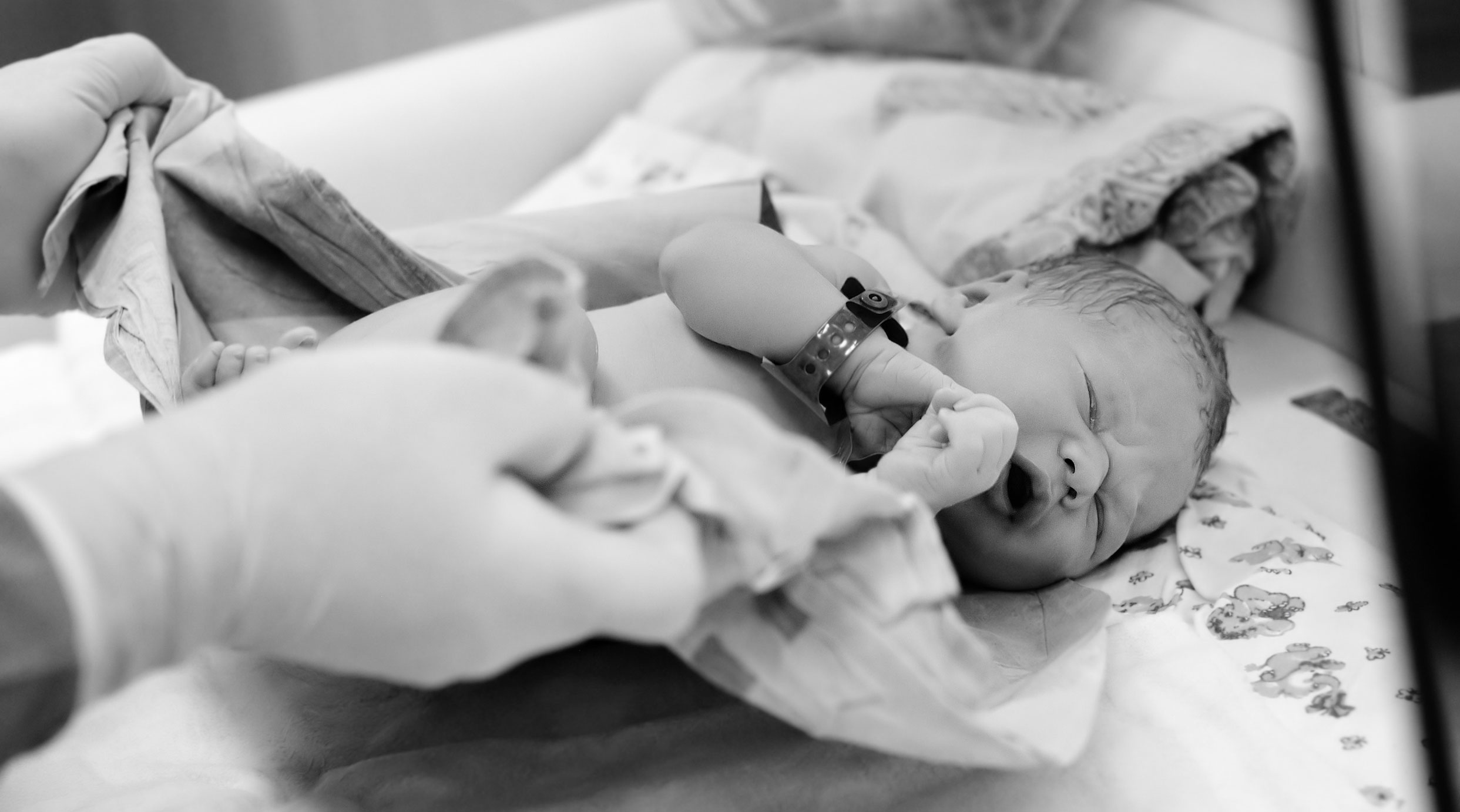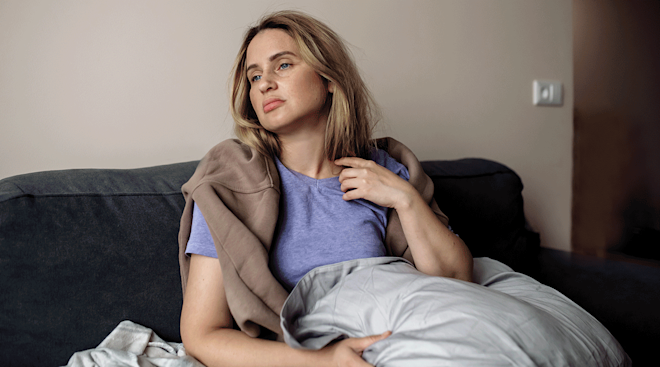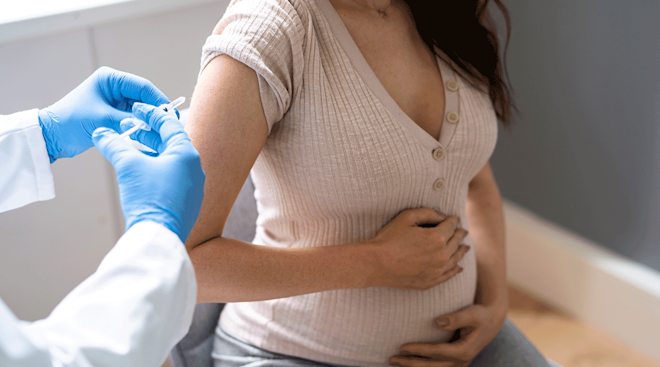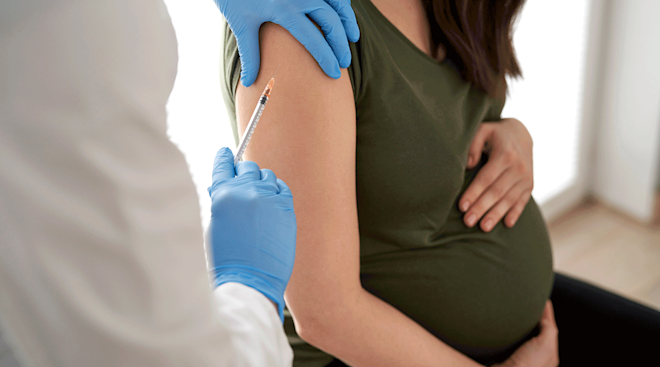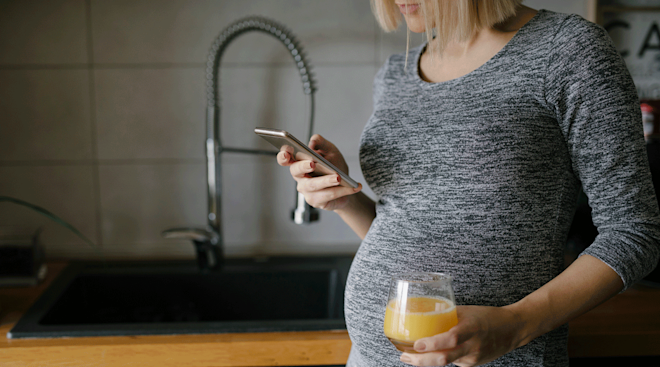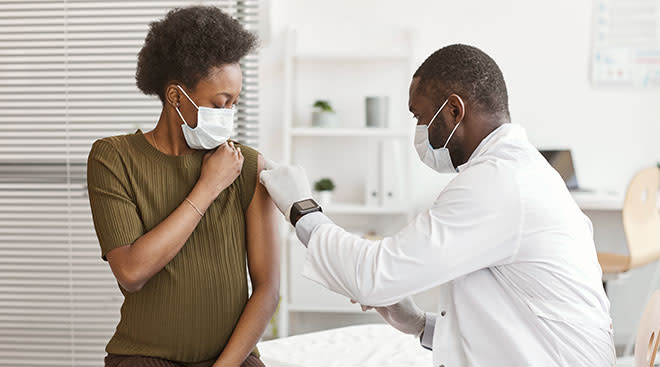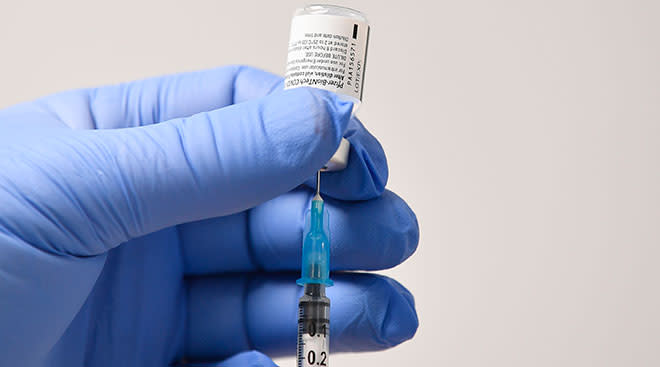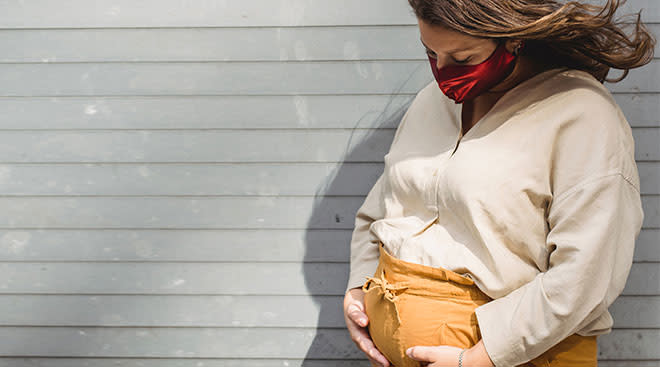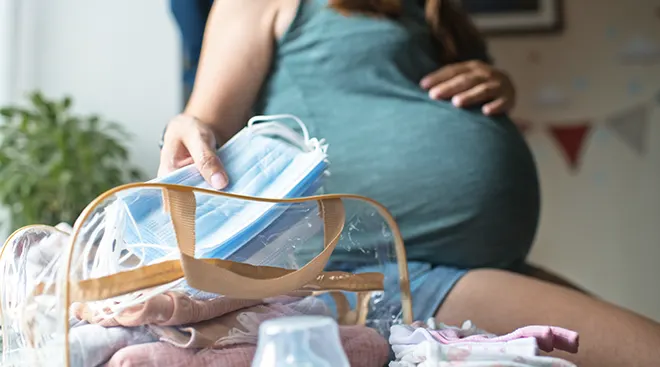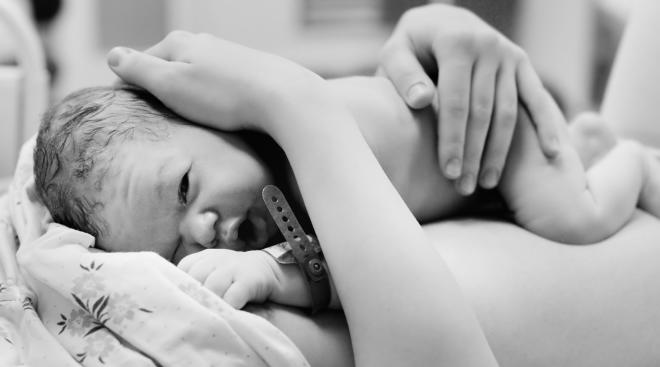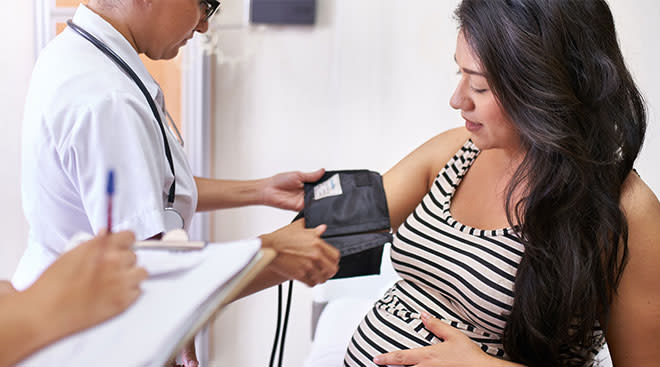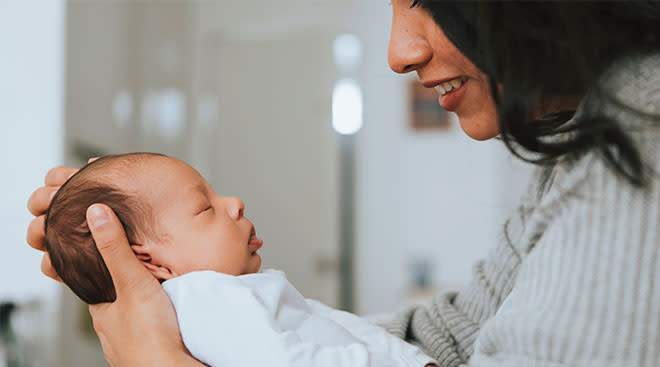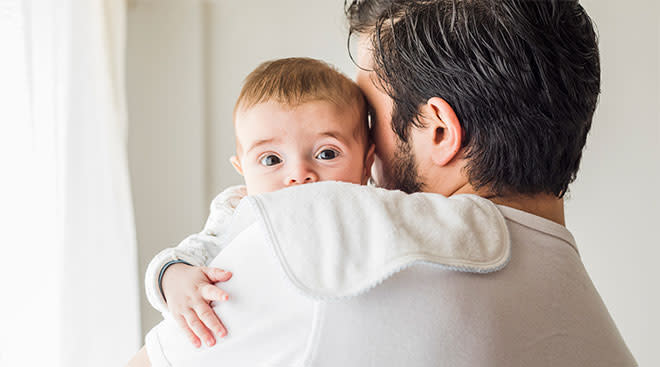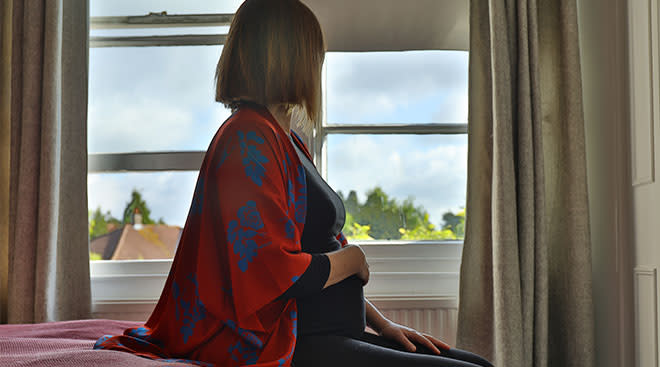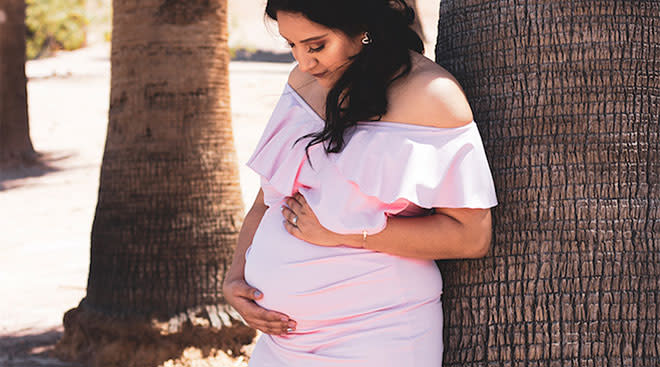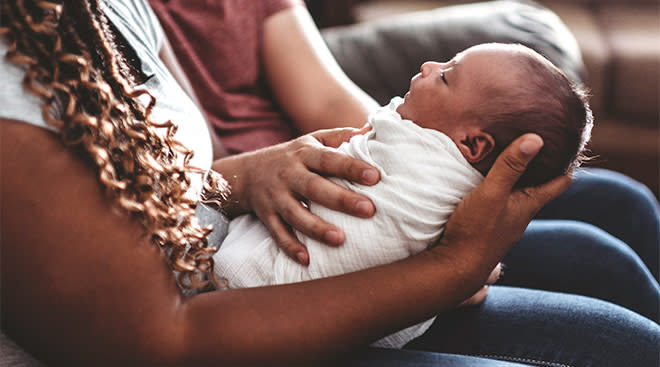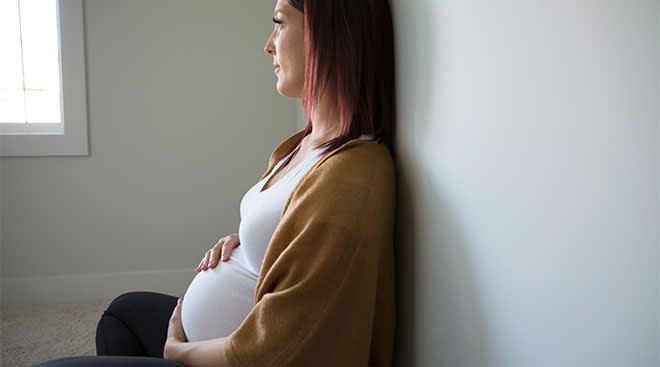Transmission of COVID-19 to Baby During Birth Is Uncommon, Study Says
Experts have been trying to figure out for months how exactly COVID-19 impacts the human body, especially in pregnant women. Early reports of COVID-19 and pregnancy stated that c-sections, isolating the newborn and formula feeding might be good ways to migitate possible infection during childbirth. But now, according to a new study, the novel virus’ transmission from mom to baby during delivery isn’t all that common—and these previously-recommended precautions may not be necessary.
The study, conducted by experts from the School of Medicine at the University of Nottingham and published in BJOG: An International Journal of Obstetrics and Gynaecology, found that the rate of infection was no greater when baby was born vaginally, breastfed or allowed contact with the mother. For the babies that did test positive for COVID-19, the experts found them to be mostly asymptomatic.
These findings go against the earlier reports that C-sections may be safer in reducing the risk of transmission, as well as that the baby should be isolated from the mom at birth and be formula fed. According to the study, there was little evidence that supported these measures.
For the study, experts systematically reviewed 49 studies on the topic of coronavirus and pregnancy. These studies looked at data from 666 newborn babies and 655 women (some women gave birth to twins). All of the women used for the study were positive for COVID-19. Of the women that gave birth vaginally, only eight out of 292 (or 2.7 percent) had a baby that tested positive for COVID-19. Meanwhile, Of the 364 women who had c-sections, 20 (or 5.3 percent) had a baby that tested positive for the virus.
The experts found that transmission of COVID to newborns is uncommon during childbirth, and, when it does happen, it’s often asymptomatic. Plus, the infection rates were no higher depending on whether baby was born vaginally, breastfed or allowed contact with the mom immediately after birth.
“We wanted to look at the outcome for babies whose mothers contracted the virus and see if the route of birth, method of infant feeding and mother/baby interaction increased the risk of babies contracting the virus. From our results, we are satisfied that the chance of newborn infection with COVID-19 is low. We would also stress that a vaginal birth and breastfeeding are safe for mothers who find themselves in these circumstances,” Dr. Kate Walker, Clinical Associate Professor in Obstetrics at the University of Nottingham, stated in a news release.
While more research needs to be done, this is certainly good news for expectant moms. If you’re due date is coming up and you’re looking for more information, check out our tips for adjusting your birth plan, what to expect for prenatal care, things you can do to help protect yourself and answers to some top questions.
Please note: The Bump and the materials and information it contains are not intended to, and do not constitute, medical or other health advice or diagnosis and should not be used as such. You should always consult with a qualified physician or health professional about your specific circumstances.
Navigate forward to interact with the calendar and select a date. Press the question mark key to get the keyboard shortcuts for changing dates.

































